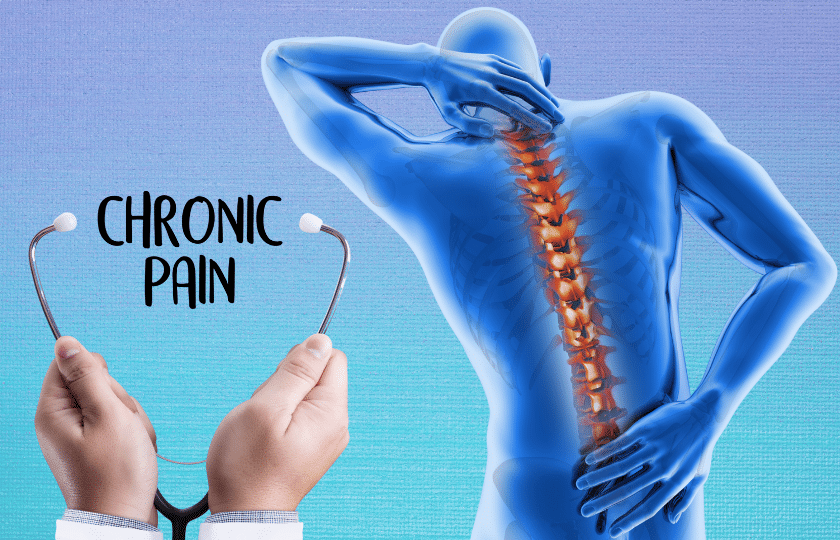Introduction
Have you ever stopped to think about how much your muscles, bones, and joints do for you every day? From walking and lifting to simply sitting comfortably, these parts of our body work tirelessly. But what happens when they’re overworked or injured? Chronic pain and long-term injuries can creep in, impacting your daily life. That’s where musculoskeletal (MSK) care comes into play. In this article, we’ll dive into why MSK care is essential for preventing chronic pain and injuries and how it can improve your quality of life. Let’s get started!
What is MSK Care?
Musculoskeletal MSK Care focuses on the health of your muscles, bones, and joints. It involves a combination of prevention, diagnosis, and treatment strategies aimed at maintaining mobility and reducing pain. Think of it as a tune-up for your body’s framework, ensuring everything runs smoothly.
Understanding Chronic Pain
Chronic pain is a long-lasting discomfort that lingers for months or even years. Unlike acute pain, which is your body’s way of saying “stop, something’s wrong,” chronic pain sticks around even after the initial injury heals. It can stem from untreated MSK issues like joint stiffness, muscle strain, or bone misalignment.
The Connection Between MSK Health and Injuries
Injuries often occur when your MSK system is overworked, misaligned, or weakened. For example, a simple twist of the ankle can lead to chronic pain if the underlying muscle or joint isn’t cared for properly. Maintaining MSK health reduces the risk of injuries and helps your body recover faster when accidents happen.
How MSK Care Prevents Chronic Pain
MSK care emphasizes prevention. By addressing small issues early—like minor aches or limited mobility—you can stop them from developing into chronic problems. Regular check-ups, stretching routines, and ergonomic adjustments are just a few ways MSK care works proactively.
The Role of Physical Therapy in MSK Care
Physical therapy is a cornerstone of MSK care. Therapists guide you through exercises that strengthen muscles, improve flexibility, and restore balance. It’s like having a personal coach for your body, helping you recover from injuries and prevent future ones.
Preventing Workplace Injuries Through MSK Care
Do you spend long hours sitting at a desk or lifting heavy objects? Workplace habits can take a toll on your MSK health. Proper posture, frequent breaks, and ergonomic tools are essential. MSK care also includes workplace evaluations to create a safer environment.
The Importance of Early Intervention
Ever heard the saying, “a stitch in time saves nine”? This is especially true for MSK care. Addressing minor discomfort early can prevent it from escalating into chronic pain or severe injuries. Don’t ignore those small aches—they’re your body’s way of asking for help.
Simple Lifestyle Changes to Support MSK Health
Small changes can make a big difference. Incorporate stretching into your daily routine, stay hydrated, and maintain a healthy weight to reduce strain on your joints. Even swapping your usual chair for one with better support can benefit your MSK health.
The Role of Exercise in Preventing MSK Issues
Regular exercise strengthens your MSK system. Activities like swimming, yoga, or strength training enhance muscle tone and joint stability. It’s not about running marathons—even a 20-minute walk can work wonders for your MSK health.
The Emotional Impact of Chronic Pain
Living with chronic pain can take a toll on your mental health, leading to feelings of frustration, anxiety, or depression. MSK care addresses this by providing physical relief, which often improves emotional well-being. Think of it as a domino effect: better physical health leads to a brighter outlook.
MSK Care for Seniors: Age Gracefully
As we age, our MSK system naturally weakens. MSK care helps seniors maintain mobility and independence. Specialized exercises, balance training, and joint care are tailored to their unique needs, allowing them to enjoy life to the fullest.
Technology’s Role in MSK Care
From wearable devices that track movement to telehealth consultations, technology is revolutionizing MSK care. These tools make it easier to monitor your progress and stay consistent with your care plan.
Seeking Professional Help for MSK Care
Sometimes, self-care isn’t enough. If you’re dealing with persistent pain or limited mobility, consult a professional. Specialists like chiropractors, physical therapists, and orthopedic doctors can provide tailored care plans to address your specific needs.
Myths About MSK Health
-
Myth: Only athletes need MSK care.
-
Truth: Everyone benefits from MSK care, regardless of activity level.
-
-
Myth: Pain is just a part of getting older.
-
Truth: While some changes are natural, chronic pain isn’t inevitable and can often be managed.
-
Conclusion
Your muscles, bones, and joints are the foundation of your body. Taking care of them isn’t just about avoiding pain—it’s about living a full, active life. Whether through exercise, professional help, or small lifestyle changes, MSK care empowers you to move freely and comfortably. So, why wait? Start prioritizing your MSK health today.
FAQs
1. What is MSK care, and why is it important?
MSK care focuses on maintaining the health of muscles, bones, and joints, preventing chronic pain and injuries.
2. How can I prevent workplace injuries related to MSK health?
Use ergonomic tools, maintain good posture, and take frequent breaks to reduce strain on your body.
3. Is exercise necessary for MSK care?
Yes, regular exercise strengthens muscles and joints, reducing the risk of injury and chronic pain.
4. Can chronic pain be fully treated?
While some cases of chronic pain can’t be entirely cured, MSK care can significantly reduce discomfort and improve quality of life.
5. When should I see a professional for MSK issues?
If you experience persistent pain, stiffness, or limited mobility, consult a specialist to prevent further complications.
